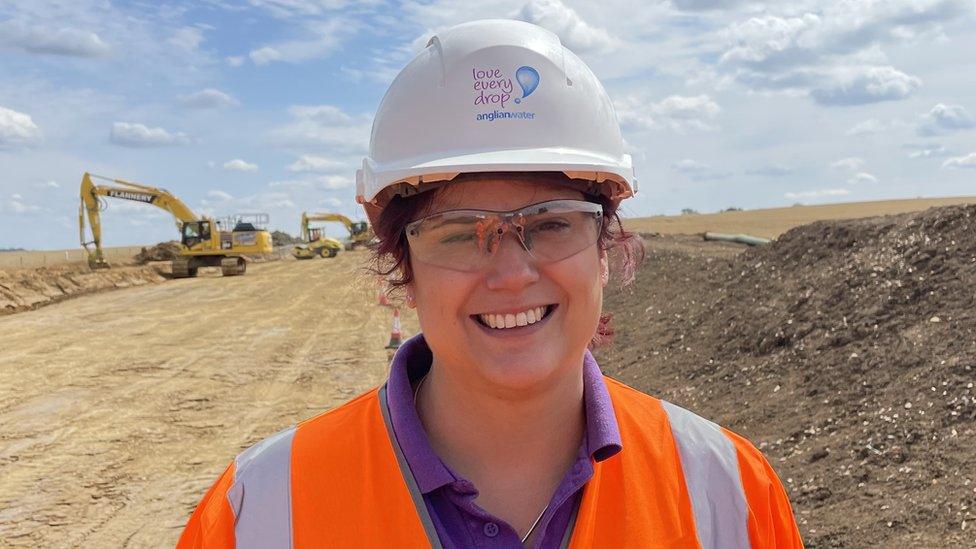Water company says 350km pipeline is 'essential'
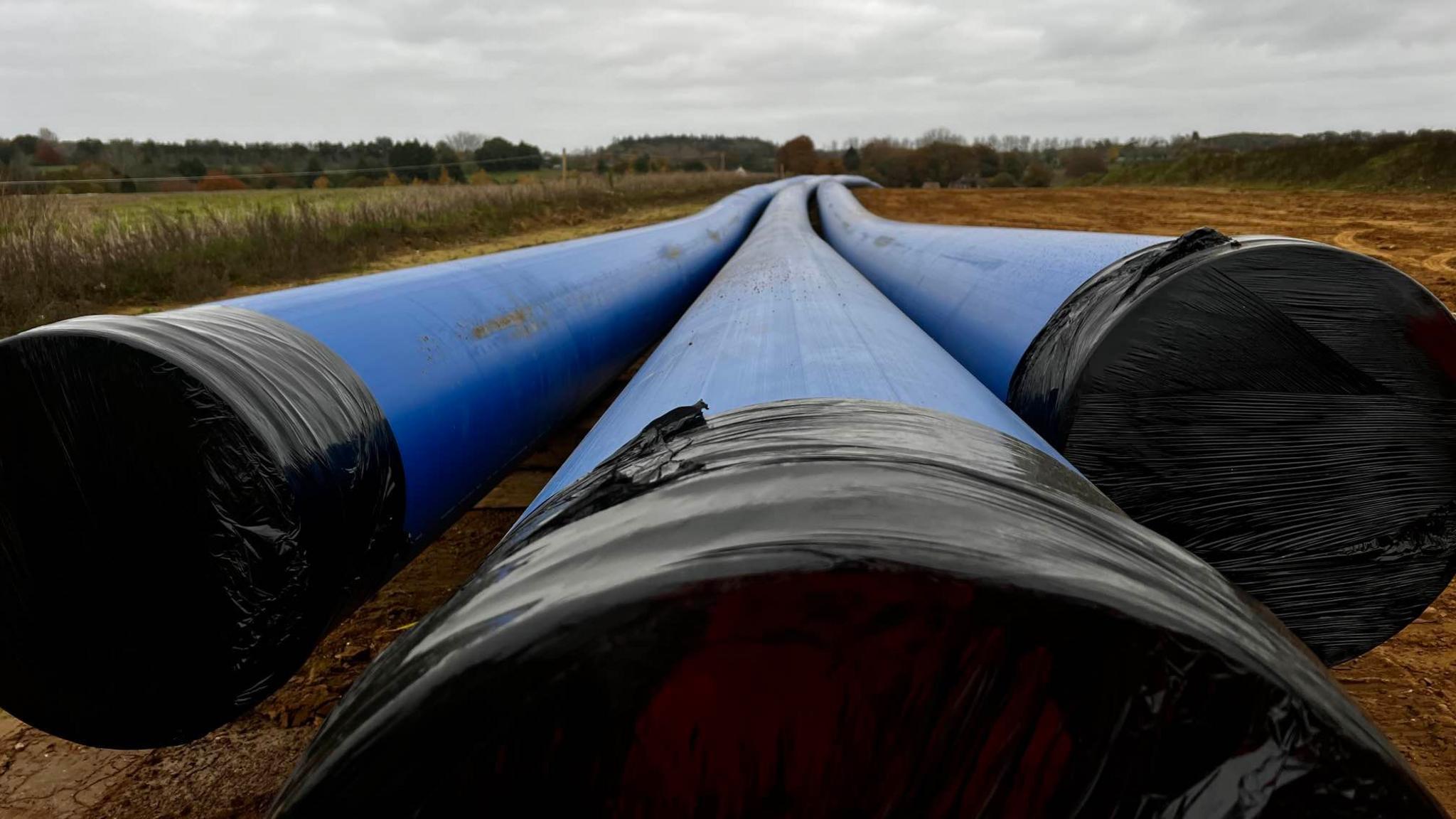
Anglian Water's strategic pipeline for the East of England is one of Europe’s biggest environmental projects
- Published
A region would be without water in the next 10 years if a new 350km (217.47 mile) pipeline was not built, according to a water company.
Anglian Water has begun its first phase of laying pipes in the ground in north Lincolnshire, which will eventually lead down into Cambridgeshire, Essex, Norfolk and Suffolk.
The company aims to develop a £500m water grid as well as two new reservoirs that will allow for water to be easily moved around East Anglia, which is one of the driest areas in the UK.
Regan Harris from Anglian Water said customers' money was paying for more than just water supply, it was helping towards this project.
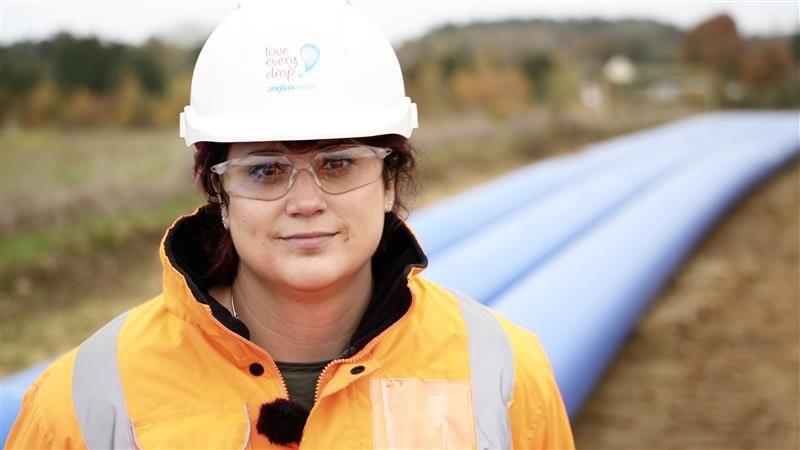
Regan Harris said the project would help create more jobs as well as support new housing and businesses in the region
"They're not just paying for us to supply them with water and then take it away again when they flush the loo, they are paying for projects like these," she explained.
"[They are] enabling us to keep taps running for generations.
"Without this pipeline we would run out water within the next five to 10 years in our region. There's no doubt about it."
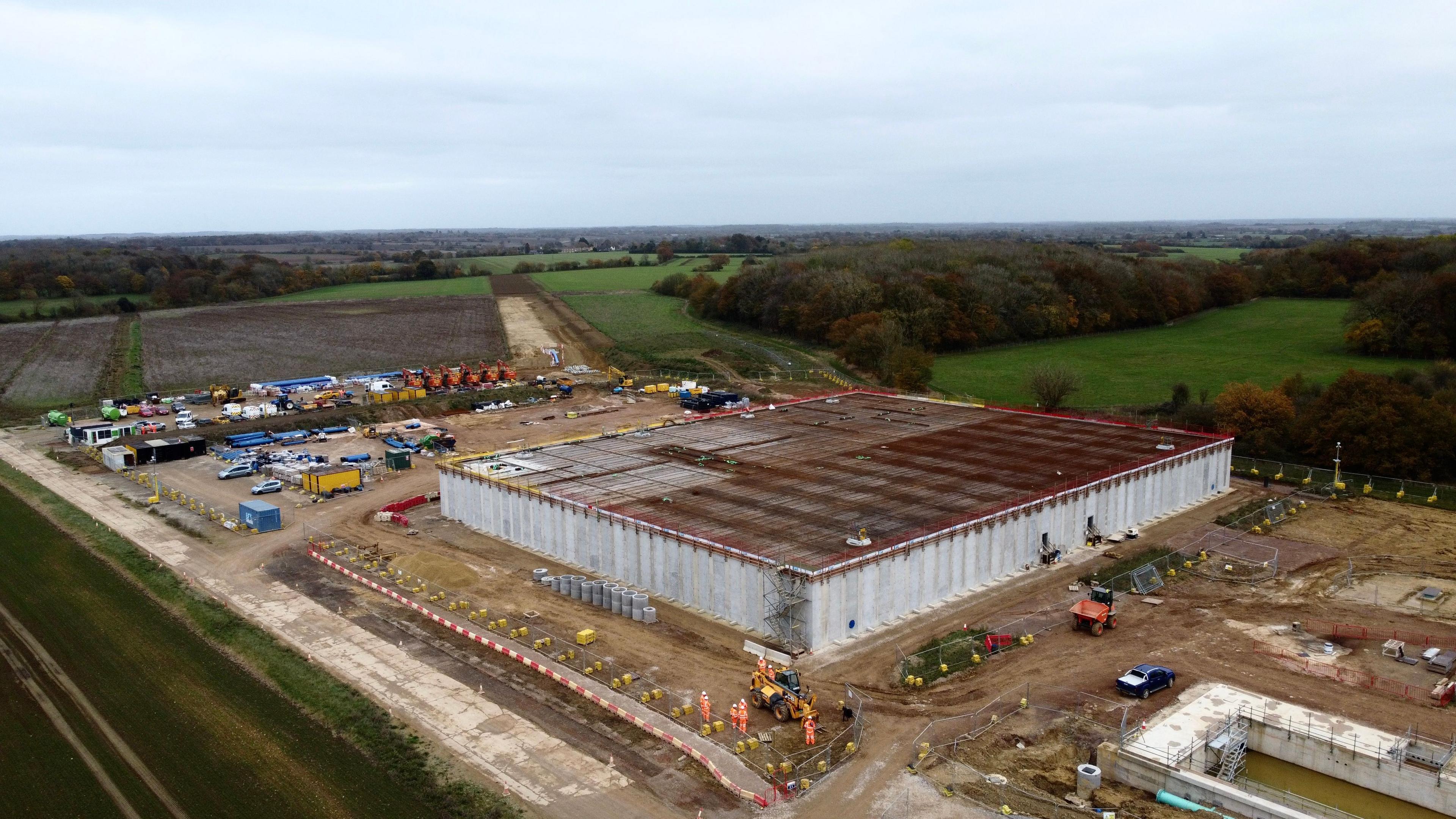
Anglian Water is building a pumping station and storage reservoir at Rede in Suffolk
According to Ms Harris, work on the first phase of the main pipeline - which will be longer than the M1 - will be completed by 2028 before extensions from this are created to connect with already established water frameworks.
"Our climate is changing really rapidly and though it may not feel like it we are one of the driest regions in the UK, but not only that we are one of the fastest growing," Ms Harris added.
"So it's really important we're thinking years ahead when it comes to supplying water."
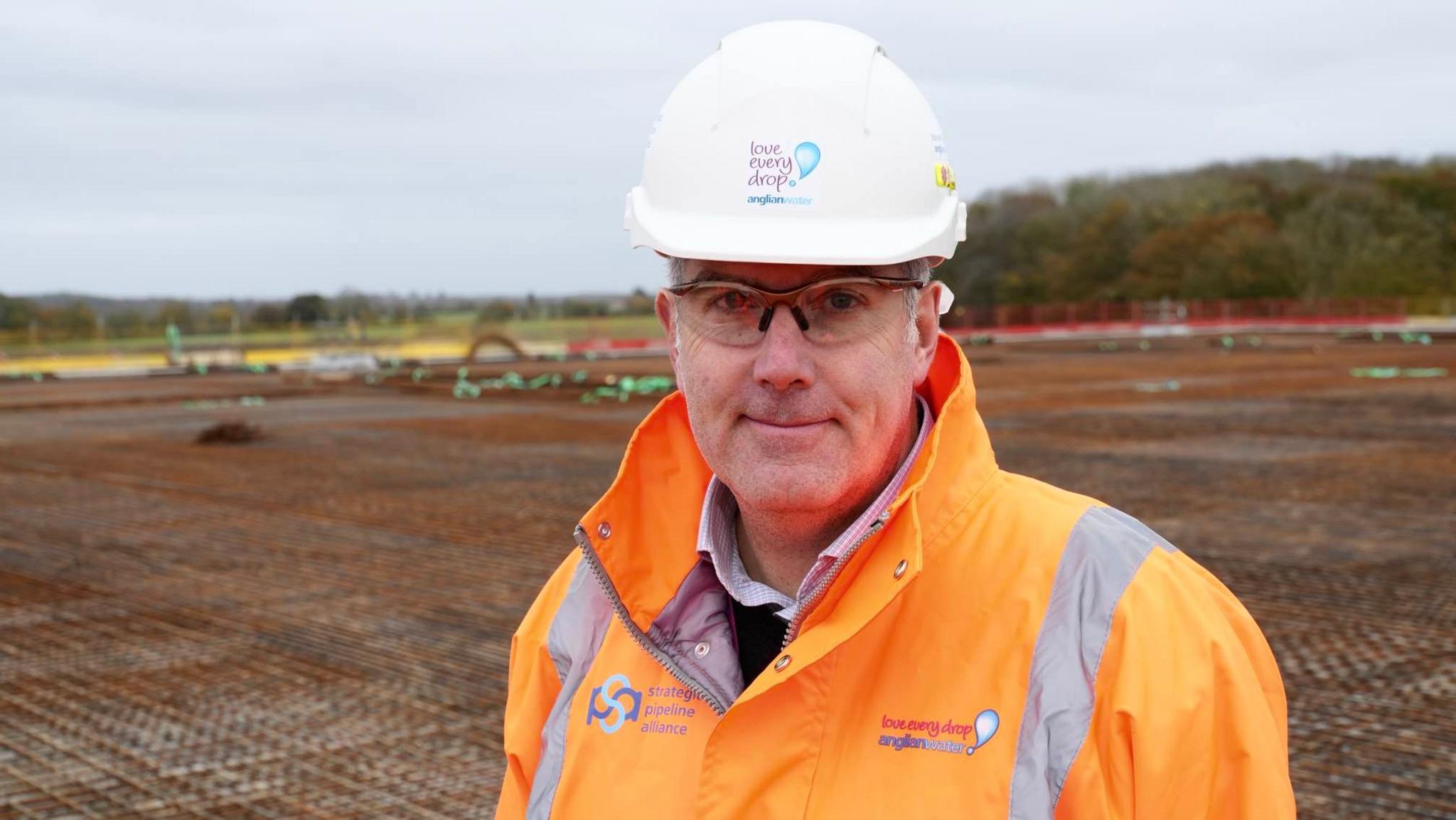
Andy Alder said the new reservoirs also being built would plumbed into the wider water grid eventually
Andy Alder, the managing director for major infrastructure delivery at Anglian Water, explained the company was aware of concerns surrounding the project's impact on the environment and communities.
"It's partly about providing improved water security and resilience in water supply, but a lot of the water supply we drink here in the southern part of the region comes from ground water abstraction," he said.
"That has an impact on the ecology because it takes water out of the rivers.
"So as well as being able to move water to where it's needed by people, it allows us to reduce the ground water abstractions to keep more water in the streams and rivers and allow the ecosystems to flourish.
"It's an essential project but we recognise big projects like this have an impact in the areas we're in and we need to manage that, minimise it and do our best to protect the environment and communities as we do that work."
Listen: The massive water project that you are paying for
Get in touch
Do you have a story suggestion for Suffolk?
Follow Suffolk news on BBC Sounds, Facebook, external, Instagram, external and X, external.
Related topics
- Published3 August 2024

- Published21 August 2023
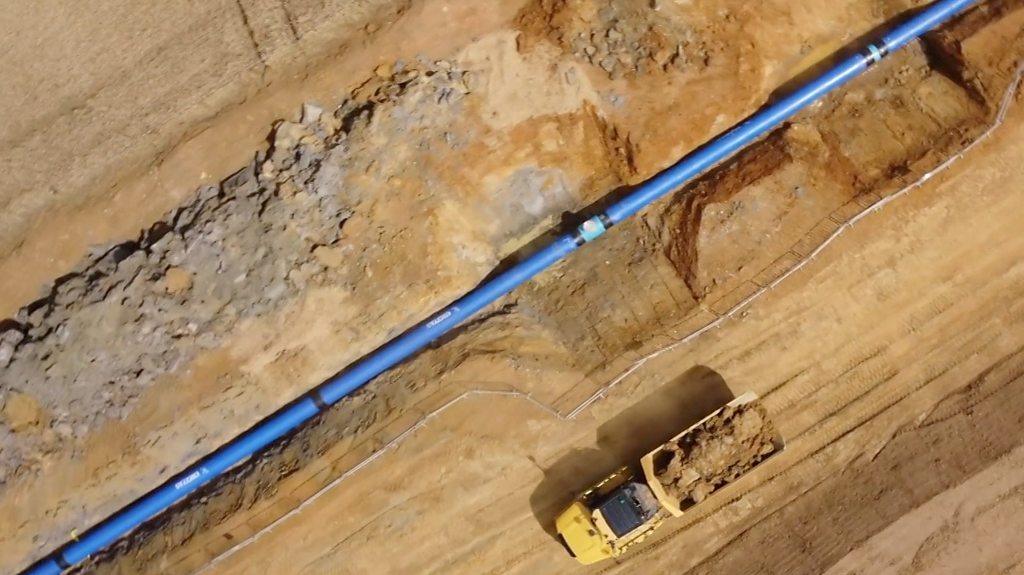
- Published22 August 2023
